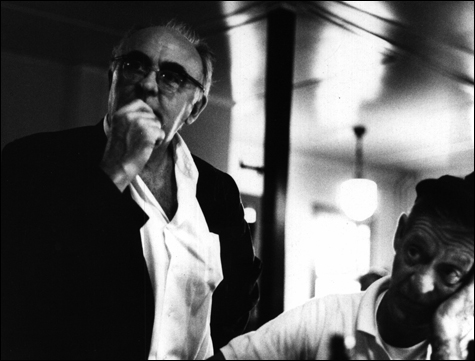
THE FACTS OF WORK: Henry Ferrini's film is a clear working vision of American literary figure
Charles Olson. |
From director Henry Ferrini and writer Ken Riaf, Polis Is This is the best film about an American poet ever made. Given travesties from Hollywood’s Tom and Viv to actors impersonating poets like Hart Crane and William Carlos Williams in public-television documentaries, that is not high enough phrase. Ferrini and Riaf present the complex American literary figure Charles Olson (1910–1970) in a clear way by focusing not on the facts of his life but on the facts of his work.
Ferrini exploited the great advantage he brought to the project: he lives in and knows Gloucester, Olson’s home, and the polis and place of the film’s title. His images are a visual analogue to Olson’s words, lit by the bracing clarity of Gloucester’s incomparable light. Some of these images illustrate Olson’s poems, but they do so in a way that might naturally occur to any reader. The interview subjects — students, friends, readers — are wide-ranging. Harvard Professor of Landscape (!) John Stilgoe encapsulates Olson’s thinking brilliantly, and poet Robert Creeley illuminates his friend’s work by referring to Miami Dolphins fullback Larry Csonka. In voiceovers, John Malkovich avoids speaking Olson’s words like an actor. Olson himself is seen in excerpts from a 15-minute documentary produced by NET in the 1950s, talking in his kitchen, walking Gloucester’s slushy streets. “Polis is eyes,” he wrote, and Ferrini gives his viewers the eyes to see Olson in Gloucester.